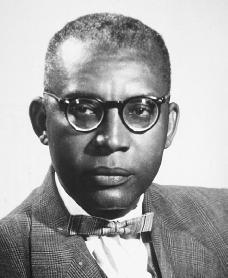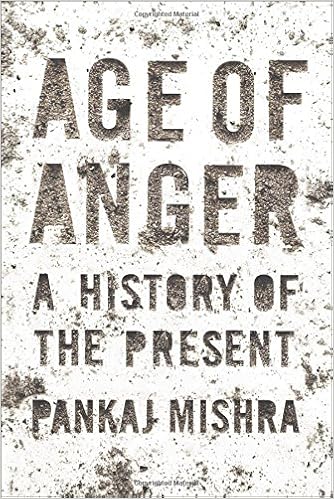by Nii
Ayikwei Parkes
 |
| Supermarket Bananas with Spider |
In the
last fifteen years, I have found two trends in Western news
particularly fascinating; one is quirky and the other is odd. The
first is the increasingly frequent articles showcasing some stunned
family that has found a 'dangerous' tropical critter in their bananas
or in the fruit aisle of their local supermarket and the second is
the almost-as-regular opinion pieces on how governments ignore the
voice of the majority. I think these trends fascinate me because in
Ghana specifically and, perhaps, in the so-called developing world as
a whole, these things are not news, just pesky thin-limbed things we
would brush off our shoulders. However, with reflection, I am
probably also drawn to these curiosities because they are metaphors
for how the bad can lurk in the ostensibly good.
I think of
these things today as a reflect on the 108th birthday of
Ghana's first president, Osagyefo Dr Kwame Nkrumah and how, as a
child, I would rarely hear good things about him outside of my own
home, where my father had a near-complete library of Nkrumah's
writings. My late father – firm friends with the daughter of J.B
Danquah, a man famed as one of the most prominent victims of
Nkrumah's Preventive Detention Act of 1958; and married to a niece of
General Ankrah, the man who overthrew Nkrumah – was no apologist
for Nkrumah's excesses, but was appreciative of his vision and the
real positive changes that he had seeded in Ghana. He considered the
man a flawed genius. It is in this ambivalent space that I came to
know Nkrumah – all my history books painting him as a wasteful
despot who had left Ghana in debt; my father insisting that we were
the best-educated nation in Africa, even with a large number of
skilled Ghanaians stranded in exile after the coup d'état of 1966
that ended Nkrumah's reign.
 |
| Doc Duvalier |
With my
own study of the history of the Enlightenment and Capitalism as a
whole, as well as my almost natural interest in coups d'état given
that I experienced my first when I was five years old, I have come to form a number of new opinions on Nkrumah, his successes and failings. There are two primary ones;one is that regardless of the
economic system he was believed to have leaned towards, Socialism or
Capitalism, they are both Western systems based on the notion of
acquisition as development, and inherent within the quest to keep up
with the Smiths and Joneses is a seed of despotism, which he could
not escape; two is that his real crime, which rid him of the
Western support that despots such as Pinochet of Chile, Mubarak of
Egypt, Duvalier of Haiti, Mobutu of Congo, Jiménez of Venezuela,
Marcos of the Philippines, Habre of Chad and Tito of Yugoslavia
enjoyed, was that within his mission was a leaning towards
self-sufficiency that would effectively impoverish the supply line of
dependence pivotal to the West's economic and political leadership of
the world as we know it. The first was his curse, the second was his gift (to us, not the West). To my mind, the second notion is what
aligns Nkrumah with Thomas Sankara of Burkina Faso and Patrice
Lumumba of Congo.
Perhaps
the greatest trick of Western-style development peddlers is the
neglect to qualify that the engine of such development is
subjugation. It's just like your organic fruit seller forgetting to
tell you that not using pesticides means that you are more likely to
get a friendly spider or scorpion from Panama in your bunch of
bananas. They won't tell you that because then they can't charge you
the premium you pay to eat organic fruit. Their aim is to sell fruit
just as development peddlers aim to sell Western-style development.
The Swiss-born philosopher Jean Jacques Rousseau had plenty to say
about the ills of the materialism and individualism that lies at the
heart of this model of development, lamenting in his Discourses
that it makes “all men competitors, rivals or rather enemies”
resulting in “a multitude of bad things for a small number of
good”.
Much of
the wealth that became the engine for Europe's development was earned
under Feudalism, with majority of the population barely paid for
their labour, this was followed by largely autocratic regimes and,
for the most economically successful, the Transatlantic Slave Trade
and colonialism. In fact, it is stunning how soon after the
beginnings of the decline of Feudalism (early 16th
Century) the Slave Trade starts to flourish and how the legal
abolition of Feudalism in England, for example (The Tenures Abolition
Act 1660), coincides with the time when the English become the
leading shippers of slaves from West Africa. With these immeasurable
advantages in place, England exploded in wealth and edifices.
Immanuel Kant, the German philosopher, celebrates in several writings
the motivating power of competitiveness and vanity and, sure enough,
the rest of the world has sought to display its own edifices and
wealth since. Russia, in seeking to catch up with the English and
French, were under the tyrannical rule of first Peter the Great, then
his successors until Catherine the Great; the United States of
America had chattel slavery. So, yes, governments ignore the voice of
the majority when they seek material gain. (Anyone remember the Iraq War?) The Enlightenment and
colonial era exploitations I mention are near impossible to duplicate
and the closest a nation can get to those conditions is some form of
despotism. Of course, this only counts if your notion of development
is the Western model – and Nkrumah, with his Western education,
could not help but be shaped by these ideas and therein lay his seed
of dictatorship. People had to be dominated.
There is a
quote from Rousseau on kings, which I believe speaks to both
Nkrumah's gradual slide into despotism and the graveness of what I
have called his real crime, which, of course, is no crime at all!
“...political sermonisers may tell [kings] to their hearts'
content that, the people's strength being their own, their first
interest is that the people should be prosperous, numerous and
formidable; they are well aware that this is untrue. Their first
personal interest is that the people should be weak, wretched, and
unable to resist them.” For Nkrumah, his primary desire was
that the people should be unable to resist him, to see him as
Osagyefo – the redeemer – and trust them to lead them into a
golden era. This makes him no different from all the men – yes, men
– I have listed above who put their people through hellish times
far more extreme than Nkrumah ever inflicted on Ghanaians. So, why is
he one of the leaders (like Lumumba and Sankara) that the Western
powers sought to eliminate? The answer is simple – commerce.
Nkrumah's plans were increasingly headed in the
 |
| Silos in Tema (image source njnrr) |
Given
these facts, it is no wonder that for years care has been taken to
inform us that Nkrumah left Ghana in debt, but little light is shed
on why the men who deposed him were encouraged to let every factory
and silo that was in development waste away. The sad thing is that,
the military goons (my great uncle included) in their sycophantic
ardour didn't realise that if the factories didn't work, the money
for the loan repayments would have to come from somewhere else.
That's the other thing with the banana sellers; they don't tell you that if there is an infestation of African cockroaches you have to deal
with them yourself. They can instigate coups d'état, but they don't
erase national debt.
Ultimately,
as Pankaj Mishra says in his recent The Age of Anger, “whether
or not the non-West catches up with the West, the irrepressibly
glamorous god of materialism has superseded the religions and
cultures of the past in the life and thought of most non-Western
peoples”; in many ways, the Nkrumah ship has sailed for Ghana, but
our journey as a nation continues. Conditions as they existed during
his reign will never return, but we can still learn from his
philosophy of finding our own approaches to development, the innate
instinct that made him deviate from a pure Western, global approach
and look inside first. In the meantime, let's remember our
self-sufficiency despot with a little more balance.
what i'm reading/listening to
listening:
Gene Ammons - Stranger in Town

reading:
Age of Anger

No comments:
Post a Comment